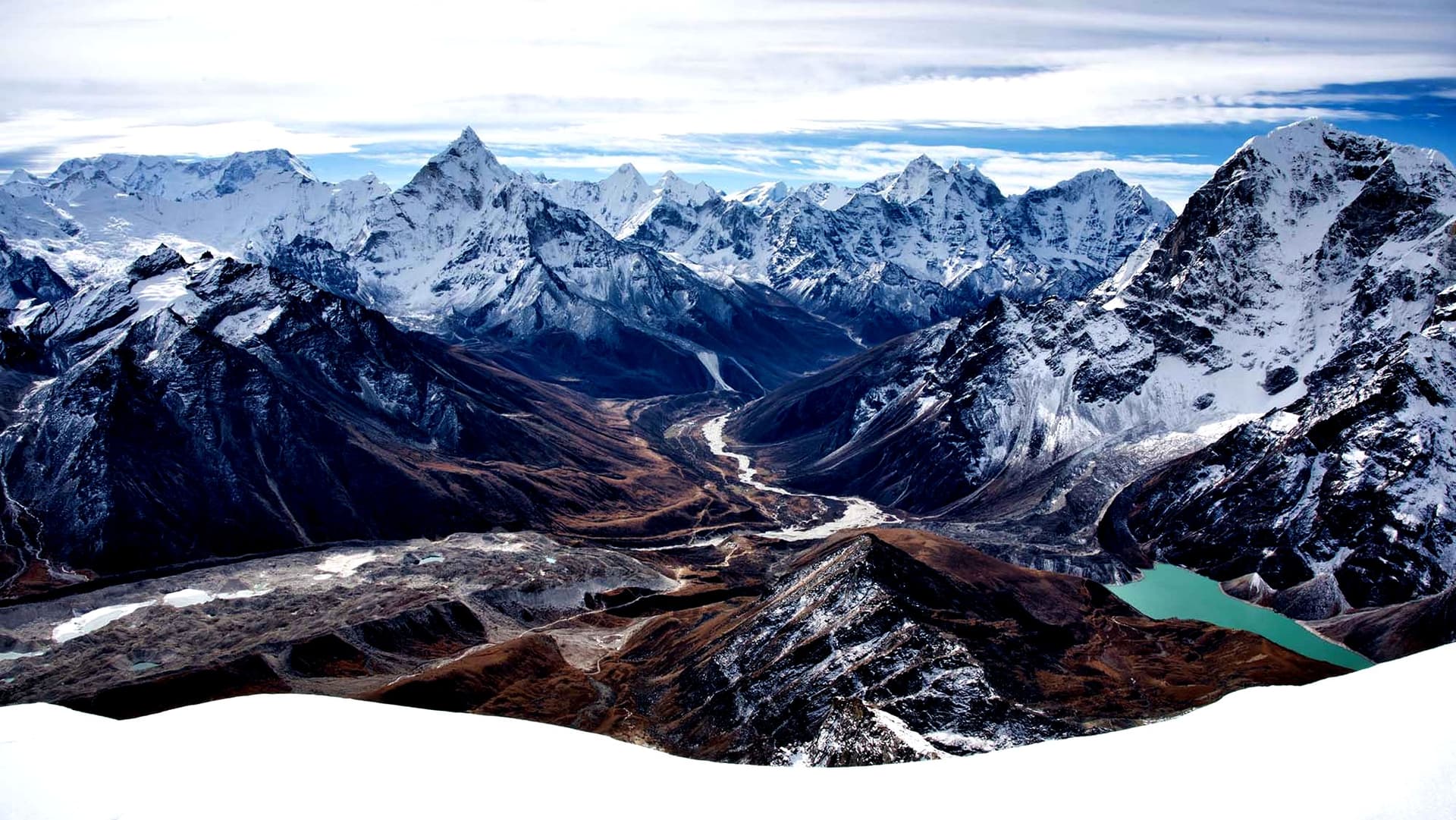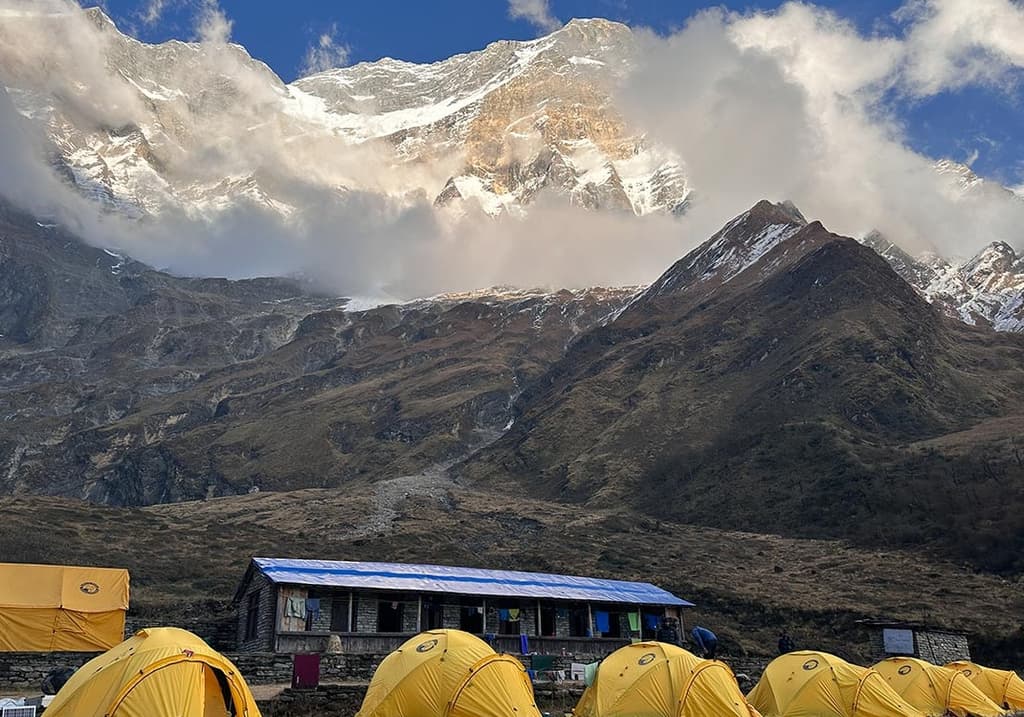The Role of Sherpas in Successful Expeditions in Nepal's Mountaineering
When we think about conquering Nepal's towering peaks, we can't ignore the incredible people who make these dreams possible - the Sherpas. At Luxury Holiday Nepal, we've witnessed countless expeditions where Sherpas transformed challenging climbs into successful adventures through their unmatched expertise and dedication.
This comprehensive guide is designed for mountaineers, adventure travelers, and expedition organizers planning their next Himalayan journey. We want to share our insights about why Sherpas aren't just guides - they're the backbone of every successful mountain expedition in Nepal.
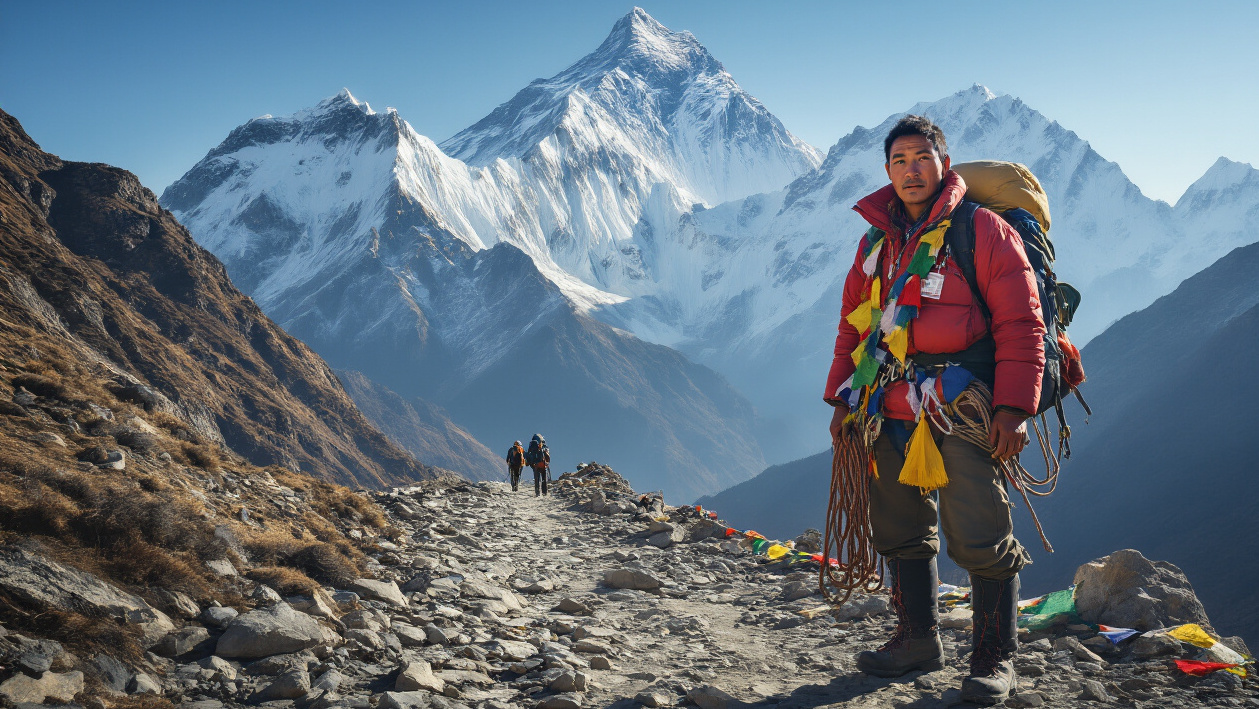
We'll explore how Sherpas bring expert navigation and route-finding capabilities that can mean the difference between reaching the summit and turning back. You'll discover the comprehensive expedition support services they provide, from carrying essential gear to setting up camps in harsh conditions. We'll also discuss their remarkable physical and mental strength that ensures expedition success, even when conditions become life-threatening.
Our experience organizing luxury expeditions has shown us that understanding and respecting the Sherpa community's role creates better outcomes for everyone involved. We believe every climber should know about the economic impact these partnerships create and how choosing the right Sherpa team can transform your Nepal expedition from good to extraordinary.
Understanding the Essential Role of Sherpas in Himalayan Expeditions
Deep Cultural Connection to Mountain Environment
We've witnessed firsthand how Sherpas possess an unbreakable spiritual and cultural bond with the Himalayas that goes far beyond simple geographical familiarity. For centuries, these remarkable people have lived in harmony with the world's highest peaks, developing traditions and beliefs that make them natural guardians of the mountains. Their Buddhist faith teaches them to respect and honor the mountains as sacred entities, treating each expedition with reverence and mindfulness.
When we work alongside Sherpa teams, we observe their daily prayers and offerings at base camps, their respect for mountain deities, and their deep understanding of weather patterns that comes from generations of observation. This connection isn't just cultural – it's practical. They know which routes the mountains "approve of" based on seasonal changes, wind patterns, and traditional knowledge passed down through families.
We've seen how this cultural awareness translates into better decision-making on expeditions. Sherpas understand the mountains' moods, recognizing subtle signs that might indicate changing conditions or potential hazards. Their connection to the environment helps them make choices that Western climbers, despite technical training, might miss.
Unmatched High-Altitude Physiological Adaptations
Our experience working with Sherpa teams has shown us their extraordinary genetic advantages for high-altitude mountaineering. Living at elevations between 12,000 and 14,000 feet for generations has given Sherpas unique physiological adaptations that make them incredibly efficient at high altitudes where oxygen levels drop dramatically.
We've observed that Sherpas typically have:
-
Enhanced oxygen-carrying capacity: Their blood contains more red blood cells and hemoglobin
-
Improved lung function: Larger lung capacity and more efficient oxygen processing
-
Better circulation: Enhanced capillary networks that deliver oxygen more effectively
-
Metabolic efficiency: Bodies that function better on less oxygen
When we compare expedition performance data, Sherpas consistently outperform climbers from lower altitudes, even when those climbers are in excellent physical condition. We've watched Sherpa team members carry heavy loads up steep terrain while maintaining normal breathing patterns, something that would leave most sea-level climbers gasping for air.
These adaptations aren't just helpful – they're often lifesaving. During emergency situations at extreme altitudes, Sherpas can respond quickly and effectively when others might be struggling with altitude-related impairments.
Generations of Mountaineering Expertise and Knowledge
We've had the privilege of working with Sherpa families where mountaineering knowledge passes from grandfather to father to son, creating an unmatched repository of practical climbing wisdom. This isn't textbook learning – it's hard-earned experience accumulated over decades of successful expeditions on the world's most challenging peaks.
Our Sherpa partners bring knowledge that includes:
| Knowledge Area | Sherpa Expertise |
| Route Selection | Intimate knowledge of multiple route options, seasonal variations, and hidden dangers |
| Weather Prediction | Traditional methods combined with modern forecasting for accurate predictions |
| Equipment Management | Optimal gear selection, maintenance, and improvised repairs at altitude |
| Rescue Techniques | Time-tested methods for emergency evacuations and medical responses |
We've witnessed situations where Sherpa expertise saved entire expeditions. Their ability to read mountain conditions, predict weather changes, and navigate complex terrain often makes the difference between success and failure. They know which camps offer the best protection, where water sources remain reliable, and how to modify routes based on current conditions.
Here are some of the best Expedition Packages in Nepal:-
Critical Safety and Risk Management Skills
Through our partnerships with experienced Sherpa teams, we've learned that their approach to safety goes beyond following protocols – it's an intuitive understanding of risk management developed through years of high-stakes mountaineering. Sherpas excel at identifying potential hazards before they become dangerous, often preventing accidents through early intervention.
We've observed their safety expertise in several key areas:
Risk Assessment: Sherpas constantly evaluate changing conditions, from avalanche risks to weather patterns. They make split-second decisions about route safety based on subtle environmental cues that others might miss.
Emergency Response: When accidents occur, Sherpa teams respond with remarkable efficiency. We've seen them organize complex rescues, provide medical assistance, and coordinate evacuations under extreme conditions.
Team Safety Management: Experienced Sherpas monitor team members' physical and mental conditions, identifying signs of altitude sickness, exhaustion, or poor decision-making before these issues become critical.
Equipment Safety: They understand gear limitations and know how to improvise solutions when equipment fails at crucial moments.
We trust our Sherpa partners not just for their climbing abilities, but for their judgment. They're not afraid to recommend turning back when conditions become too dangerous, prioritizing team safety over summit goals. This wisdom, combined with their technical skills, makes them indispensable members of any serious Himalayan expedition.
Expert Navigation and Route-Finding Capabilities
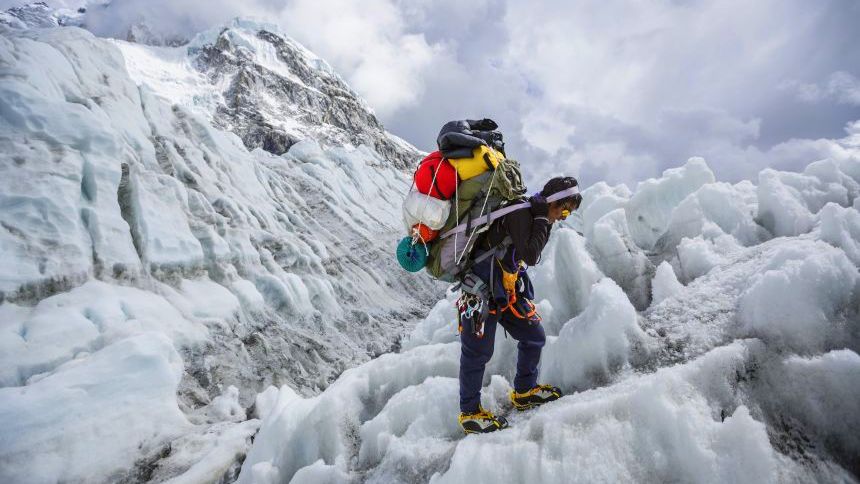
Intimate Knowledge of Weather Patterns and Seasonal Changes
Our Sherpa teams bring decades of accumulated wisdom about the Himalayas' complex weather systems, knowledge that can mean the difference between expedition success and dangerous situations. We've witnessed how experienced Sherpas can read subtle changes in cloud formations, wind patterns, and atmospheric pressure that Western meteorological equipment might miss or misinterpret.
During our expeditions, we rely heavily on our Sherpas' ability to predict local weather phenomena with remarkable accuracy. They understand how the monsoon affects different valleys at varying times, when the jet stream typically shifts to create climbing windows on peaks like Everest, and how microclimates develop around specific mountain faces. This expertise proves invaluable when we need to make critical decisions about pushing forward or retreating to safety.
We've observed our Sherpa guides detecting incoming storms hours before satellite weather reports confirm the conditions. They notice changes in animal behavior, shifts in snow crystal formation, and variations in morning mist patterns that signal approaching weather systems. Their seasonal knowledge extends beyond simple temperature and precipitation predictions - they understand how different weather patterns affect avalanche risks, ice formation stability, and optimal climbing conditions for specific routes.
| Weather Pattern | Traditional Sherpa Indicators | Climbing Implications |
| Approaching Storm | Birds flying lower, unusual cloud formations | Immediate descent required |
| Stable Weather Window | Clear morning visibility, consistent wind patterns | Safe for summit attempts |
| Monsoon Transition | Humidity changes, specific cloud colors | Route strategy adjustments needed |
Advanced Ice and Rock Formation Assessment Skills
We depend on our Sherpa partners' exceptional ability to evaluate constantly changing ice and rock conditions throughout the climbing season. Their expertise goes far beyond basic safety assessments - they understand the structural integrity of ice formations, the stability of rock faces after weather events, and how different temperatures affect climbing surfaces throughout the day.
Our expeditions benefit tremendously from Sherpas' skills in identifying safe passages through technical terrain. We've watched them assess ice quality by examining color variations, listening to sounds when striking the surface, and evaluating how different sections respond to temperature changes. They can determine which seracs pose immediate collapse risks, which crevasse bridges will support climber weight, and how recent weather has affected route conditions.
When we encounter challenging sections like the Khumbu Icefall or technical rock faces on peaks like Ama Dablam, our Sherpa teams demonstrate remarkable expertise in reading the mountain's mood. They identify signs of recent rockfall, assess the stability of anchor points, and recognize when ice conditions have deteriorated beyond safe climbing parameters. This knowledge directly impacts our route selection and timing decisions.
We particularly value their ability to predict how formations will change throughout the climbing day. They understand when morning freeze conditions will give way to dangerous afternoon melting, when certain ice sections become too brittle for safe passage, and how wind exposure affects different route sections. This temporal awareness of mountain conditions proves crucial for maintaining expedition safety while maximizing summit opportunities.
Strategic Camp Placement and Route Optimization
Our successful expeditions depend heavily on Sherpa expertise in selecting optimal camp locations and route strategies that maximize both safety and efficiency. We trust their judgment completely when it comes to identifying sites that offer protection from avalanches, rockfall, and severe weather while providing strategic positioning for continued ascent.
The camp placement decisions our Sherpa teams make consider factors that might not be immediately obvious to international climbers. They evaluate drainage patterns to avoid flood-prone areas during storms, assess exposure to prevailing winds, and identify locations with adequate snow or water sources for expedition needs. We've seen them reject seemingly perfect camping spots because they recognize subtle signs of instability or exposure risks.
Route optimization represents another area where Sherpa expertise proves invaluable to our expeditions. They don't simply follow established paths - they continuously evaluate alternative routes based on current conditions, seasonal changes, and expedition-specific requirements. We benefit from their ability to identify shortcuts that save energy and time while avoiding newly developed hazards on traditional routes.
Our Team of Sherpa's are excel at creating contingency route plans that account for changing conditions throughout the expedition. They identify multiple descent options from each camp, alternative approaches if primary routes become unsafe, and emergency evacuation paths that remain viable even in severe weather. This comprehensive route planning approach significantly enhances expedition safety margins while maintaining realistic summit objectives.
We also appreciate how our Sherpa teams optimize routes for different group capabilities and expedition goals. They adjust route selection based on client experience levels, available time windows, and specific mountain conditions encountered during the expedition. This adaptive approach ensures that we maintain appropriate challenge levels while prioritizing expedition member safety and success rates.
Here are some of the best Expedition Packages in Nepal:-
Comprehensive Expedition Support Services
Professional Equipment Management and Transportation
We handle the complex logistics of managing and transporting all expedition equipment from base camp to higher altitudes. Our Sherpa teams are responsible for carrying essential gear, including climbing equipment, safety devices, communication tools, and shelter material,s across treacherous terrain. We organize load distribution efficiently, ensuring each porter carriesan appropriate weight while maintaining safety standards.
Our equipment management extends beyond simple transportation. We conduct thorough inventory checks at each camp, maintaining and repairing gear as needed. Our teams are skilled in setting up technical equipment like fixed ropes, ladders across crevasses, and anchor systems. We also manage the rotation of equipment between camps, bringing down worn items and carrying up fresh supplies as expeditions progress.
Weather protection and equipment security remain our top priorities. We waterproof sensitive gear, secure loose items against high winds, and create organized storage systems at each camp. Our experience helps us anticipate equipment needs before climbers realize what they'll require at higher altitudes.
High-Altitude Cooking and Nutrition Planning
We provide comprehensive cooking services that go far beyond basic meal preparation. Our high-altitude cooks understand how reduced oxygen levels affect both appetite and digestion, adapting meal plans to meet the specific nutritional needs of climbers at different elevations. We prepare calorie-dense, easily digestible foods that provide sustained energy for demanding climbing days.
Our cooking teams work with limited resources and extreme conditions, yet we consistently deliver hot, nutritious meals that boost morale and maintain climber health. We manage fuel consumption carefully, balancing the need for hot meals with the logistical challenges of transporting cooking fuel to high camps. Water sourcing and purification also fall under our responsibility, ensuring safe drinking water at all times.
Menu planning reflects both international preferences and local ingredients, creating familiar comfort foods while introducing climbers to traditional Nepali dishes. We accommodate dietary restrictions and food allergies, maintaining detailed records of each climber's nutritional needs and preferences throughout the expedition.
Emergency Medical Response and Rescue Operations
We serve as the first line of medical response during mountain emergencies. Our teams receive extensive first aid training and carry medical supplies to treat common altitude-related illnesses, injuries from falls, and hypothermia cases. We're trained to recognize early symptoms of serious conditions like high-altitude pulmonary edema and cerebral edema.
When serious medical emergencies occur, we coordinate rescue operations with helicopter services and medical facilities in Kathmandu. Our radio communication networks enable us to contact rescue services quickly and provide detailed information about patient conditions and weather circumstances. We assist in preparing landing zones for helicopter evacuations and help carry injured climbers to safe evacuation points.
Our rescue capabilities extend to technical rope rescues from crevasses and steep terrain. We maintain rescue equipment including specialized harnesses, pulleys, and medical stretchers designed for high-altitude evacuations. Many of our senior Sherpas have participated in multiple rescue operations, developing expertise that can mean the difference between life and death in critical situations.
Cultural Bridge Between International Climbers and Local Communities
We act as cultural interpreters, helping international climbers understand and respect local customs and traditions. We explain the spiritual significance of mountains in Sherpa and Buddhist culture, guiding climbers through proper conduct around sacred sites and monasteries. Our role includes teaching basic Nepali phrases and explaining social etiquette that helps climbers interact respectfully with local communities.
We facilitate meaningful exchanges between climbers and village residents, arranging visits to local schools, monasteries, and community projects. These interactions enrich the expedition experience while ensuring tourism benefits reach local communities directly. We help organize cultural ceremonies like puja rituals that bless expeditions and honor mountain spirits according to traditional practices.
Our cultural mediation extends to resolving misunderstandings that might arise from different communication styles or expectations. We help manage relationships between international expedition leaders and local staff, ensuring clear communication and mutual respect throughout the climbing season. This cultural bridge-building strengthens the partnership between international mountaineering and local communities, creating positive relationships that benefit everyone involved in Nepal's climbing industry.
Physical and Mental Strength That Ensures Expedition Success
Superior Load-Carrying Capacity at Extreme Altitudes
We've witnessed countless expeditions where Sherpas carry loads that would leave even the strongest climbers struggling at sea level, and they do this while ascending to altitudes where oxygen levels drop to dangerous lows. Our Sherpa team members routinely carry 30-40 kilograms of essential gear, food supplies, and climbing equipment up steep mountain faces where every breath becomes a conscious effort.
What makes this remarkable is their ability to maintain this carrying capacity above 5,000 meters, where most climbers begin experiencing significant altitude-related challenges. We've observed our Sherpas efficiently transporting expedition materials to base camps at 5,364 meters on Everest, and continuing to ferry supplies to advanced camps at even higher elevations without the severe fatigue that affects other team members.
Their superior load-carrying ability stems from generations of high-altitude adaptation, combined with years of practical mountain experience. We regularly see our Sherpa guides making multiple trips between camps in a single day, carrying everything from oxygen cylinders to communication equipment, while maintaining the energy reserves needed for critical safety decisions. This capacity directly impacts expedition success rates, as proper supply chains between camps often determine whether climbers can safely attempt summit pushes or need to abandon their goals due to insufficient resources at critical altitudes.
Exceptional Endurance and Stamina in Harsh Conditions
We've partnered with Sherpas who demonstrate endurance levels that consistently amaze even veteran mountaineers. Our team members work 12-16-hour days in conditions that would challenge professional athletes, navigating through blizzards, extreme cold, and unpredictable weather patterns that can shift from calm to life-threatening within minutes.
During our expeditions, we've watched Sherpas maintain their performance levels through weeks of continuous high-altitude work, often sleeping in basic accommodations and eating simple meals while supporting climbers who have access to better rest and nutrition. Their stamina becomes especially critical during emergency situations, where they might work continuously for 24-48 hours to ensure expedition member safety.
We've documented situations where our Sherpa guides have descended from high camps to retrieve additional supplies, then immediately turned around to guide climbers up the same routes they just descended. This type of back-to-back performance requires exceptional cardiovascular fitness and mental resilience that goes beyond normal athletic training.
| Endurance Factors | Sherpa Performance | Average Climber Performance |
| Working hours at altitude | 12-16 hours daily | 6-8 hours daily |
| Recovery time needed | 4-6 hours | 8-12 hours |
| Days of continuous activity | 20-30 days | 10-15 days |
| Load carrying while maintaining pace | 30-40 kg | 15-20 kg |
Calm Decision-Making Under Life-Threatening Pressure
We depend on our Sherpa guides' ability to make split-second decisions when expedition lives hang in the balance. Their mental strength becomes most apparent during crisis situations - avalanche threats, sudden weather changes, medical emergencies, or equipment failures that could turn fatal without immediate, correct responses.
We've experienced situations where our Sherpa team leaders assessed dangerous ice formations, changing weather patterns, and climber health conditions simultaneously, then made route modifications that prevented potential disasters. Their decision-making process draws from years of mountain experience, cultural knowledge passed down through generations, and an intuitive understanding of mountain conditions that can't be learned from textbooks.
During high-pressure scenarios, we've observed our Sherpas maintaining clear communication with all expedition members while coordinating complex rescue operations or route changes. They demonstrate remarkable emotional regulation, staying focused on problem-solving rather than becoming overwhelmed by stress or fear. We've seen them guide panicked climbers through technical sections, provide emergency medical care, and organize evacuations while maintaining the calm presence that keeps entire expeditions from descending into chaos.
Their mental resilience shows in their ability to work effectively after witnessing traumatic mountain accidents, losing fellow climbers, or facing their own near-death experiences. We've worked with Sherpa guides who continue supporting expeditions despite personal losses, demonstrating a level of psychological strength that proves essential for successful high-altitude mountaineering operations.
Economic Impact and Sustainable Tourism Development
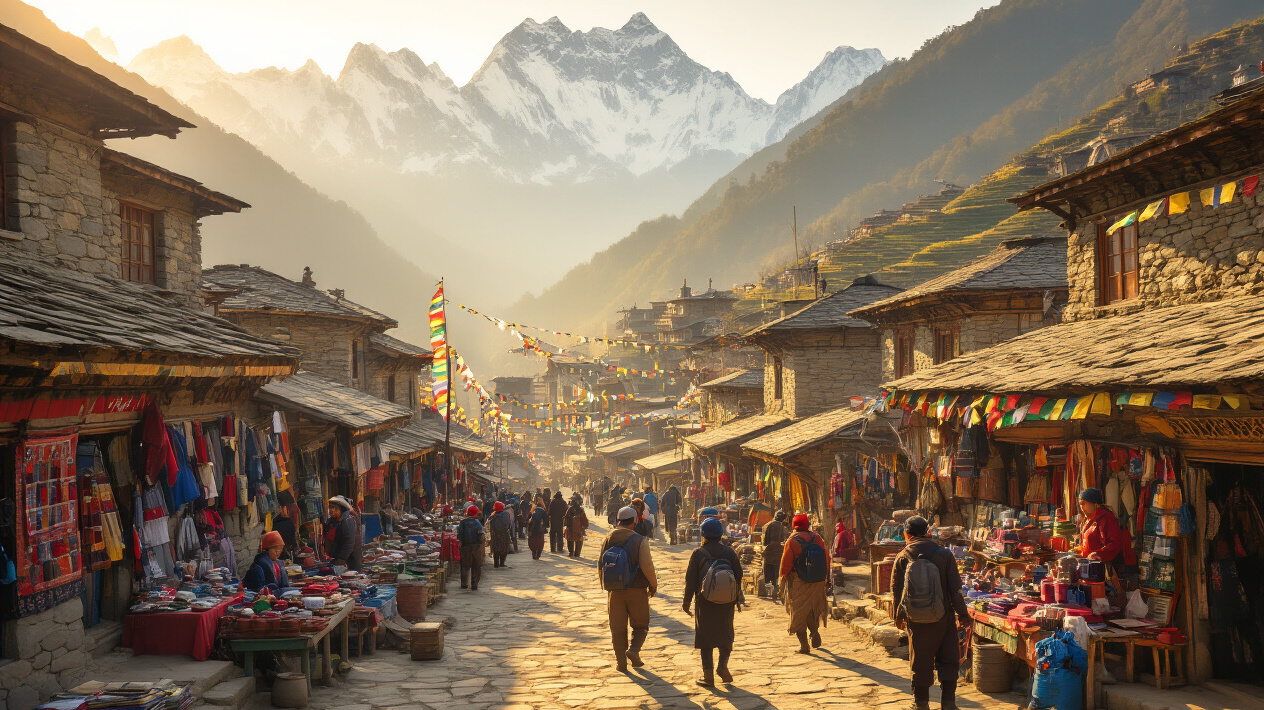
Primary Income Source for Mountain Communities
When we explore the economic landscape of Nepal's mountain regions, we quickly discover that mountaineering expeditions serve as the backbone of local economies. Our experience working with Sherpa communities reveals that expedition work provides income that often exceeds what these communities could earn through traditional farming or livestock activities by three to four times.
We've witnessed families whose entire economic structure revolves around the climbing seasons. During peak expedition periods from March to May and September to November, our Sherpa partners earn substantial income that sustains their households throughout the year. This seasonal work creates a multiplier effect - when Sherpas earn well, they spend money on local goods and services, benefiting shopkeepers, porters, cooks, and transport operators.
Our partnerships with Sherpa communities have shown us how mountaineering income transforms lives. We see children attending better schools, families building improved homes, and communities investing in small businesses. The ripple effect extends beyond individual families to entire villages that benefit from the economic activity generated by expedition tourism.
Through our expeditions, we directly contribute to this economic ecosystem by ensuring fair wages and providing year-round employment opportunities for our core team members. This steady income stream allows our Sherpa partners to plan for the future and invest in their communities' development.
Preservation of Traditional Skills Through Modern Applications
Our collaboration with Sherpa communities has given us front-row seats to witness how traditional mountain skills blend seamlessly with modern expedition requirements. We observe how ancient knowledge of weather patterns, route selection, and altitude adaptation gets enhanced with contemporary safety equipment and communication technology.
The skills we rely on during our expeditions - reading mountain conditions, understanding seasonal weather changes, and navigating challenging terrain - have been passed down through generations of Sherpa families. Our Sherpa guides combine this inherited wisdom with modern mountaineering techniques, creating an unmatched level of expertise that we depend on for successful expeditions.
We actively support the preservation of these traditional skills by creating employment opportunities that value this knowledge. When we hire Sherpa guides, we're not just getting technical climbing support; we're investing in a living repository of mountain wisdom that cannot be learned from textbooks or training programs.
Our approach includes documenting and sharing traditional practices with younger Sherpa generations, ensuring these valuable skills don't disappear as modernization advances. We encourage our Sherpa partners to teach traditional techniques to newcomers, creating a knowledge transfer system that preserves cultural heritage while adapting to modern expedition needs.
Promoting Responsible Mountaineering Practices
Our expeditions demonstrate responsible mountaineering practices that protect the mountain environment while supporting local communities. We implement strict waste management protocols, ensure proper acclimatization schedules, and maintain respectful relationships with local cultures and traditions.
We train our international clients on cultural sensitivity and environmental responsibility before their expeditions begin. This education extends to understanding the importance of Sherpa culture, Buddhist traditions, and mountain conservation principles. Our approach creates ambassadors who return home with a deeper appreciation for Nepal's mountain communities.
Our waste management systems include carrying out all non-biodegradable materials and supporting local clean-up initiatives. We work with Sherpa communities to establish recycling programs and proper disposal methods for expedition waste. These practices set standards that other expedition companies often adopt.
We support fair trade practices by ensuring our Sherpa partners receive appropriate compensation, insurance coverage, and safety equipment. Our transparent pricing structure allows clients to understand exactly how their expedition fees support local communities, creating a direct connection between adventure tourism and community development.
Training and Professional Development of Modern Sherpas
International Certification and Safety Standards
We work closely with our Sherpa teams to ensure they meet the highest international safety standards required for high-altitude mountaineering. Our Sherpas undergo rigorous training programs certified by the Nepal Mountaineering Association (NMA) and the International Federation of Mountain Guides Associations (IFMGA). These certifications cover wilderness first aid, high-altitude rescue techniques, and advanced mountaineering skills.
Safety protocols form the backbone of our training curriculum. We ensure every Sherpa on our team holds valid certifications in:
-
Wilderness First Aid and CPR - Essential medical training for remote mountain emergencies
-
High Altitude Rescue Techniques - Specialized skills for evacuating climbers in extreme conditions
-
Avalanche Safety and Snow Science - Critical knowledge for navigating dangerous terrain
-
Technical Rope Work and Rigging - Advanced climbing systems and safety equipment management
Our commitment to international standards means we regularly update training materials and techniques based on global best practices. We partner with internationally recognized training organizations to bring world-class instruction directly to Nepal, ensuring our Sherpas receive the same quality education as mountain guides worldwide.
Language Skills and Cross-Cultural Communication
Communication barriers can turn a dream expedition into a nightmare. We invest heavily in developing our Sherpas' language abilities and cultural awareness to create seamless interactions with international climbing teams.
Our language training programs focus on:
| Language Skills | Communication Areas |
| English Proficiency | Basic conversation, mountaineering terminology, and emergency communication |
| Cultural Awareness | Understanding Western climbing culture, dietary preferences, and communication styles |
| Non-verbal Communication | Reading body language, understanding stress signals, team dynamics |
We've seen firsthand how effective communication transforms expedition dynamics. When our Sherpas can clearly explain weather conditions, route challenges, or safety concerns, clients feel more confident and informed. This builds trust and creates the collaborative atmosphere essential for successful climbs.
Cross-cultural training helps our teams navigate different expectations and working styles. Some clients prefer detailed daily briefings, while others want minimal communication during climbs. We train our Sherpas to adapt their communication approach based on team preferences and individual personalities.
Technical Climbing and Rescue Techniques
Modern expeditions demand technical expertise that goes far beyond traditional mountaineering knowledge. We ensure our Sherpa teams master cutting-edge climbing techniques and rescue procedures that can save lives in critical situations.
Our technical training covers:
-
Advanced Rope Systems - Complex pulley systems, mechanical advantage techniques, and multi-pitch climbing
-
Ice and Rock Climbing - Modern techniques for navigating technical terrain safely and efficiently
-
High-Altitude Rescue - Helicopter evacuation procedures, medical evacuation techniques, and emergency response protocols
-
Equipment Management - Proper use and maintenance of modern climbing gear, from GPS devices to satellite communication systems
We maintain partnerships with international climbing schools to bring expert instructors to Nepal. These intensive workshops expose our Sherpas to the latest techniques used on mountains worldwide. The knowledge gained from these sessions directly benefits our expedition clients through improved safety margins and more efficient climbing strategies.
Practice scenarios form a crucial part of our technical training. We regularly conduct mock rescues on training peaks, simulating everything from altitude sickness evacuations to technical rope rescues on steep terrain. This hands-on experience builds confidence and muscle memory that proves invaluable during real emergencies.
Business and Leadership Development
The mountaineering industry has evolved beyond simple guide services. Today's successful Sherpas need business acumen and leadership skills to excel in an increasingly competitive market. We provide comprehensive business training that empowers our team members to grow professionally and contribute to Nepal's tourism economy.
Our business development programs include:
-
Entrepreneurship Training - How to start and manage trekking businesses, financial planning, and marketing strategies
-
Team Leadership - Managing diverse expedition teams, conflict resolution, and decision-making under pressure
-
Customer Service Excellence - Understanding client expectations, handling complaints, and building long-term relationships
-
Digital Skills - Using social media, online booking systems, and digital communication tools effectively
Leadership development particularly focuses on crisis management and team dynamics. We teach our Sherpas how to recognize early warning signs of team problems, whether they're related to altitude sickness, personality conflicts, or equipment failures. Strong leadership during challenging moments often determines expedition success.
We also emphasize sustainable business practices that benefit local communities. Our training includes modules on environmental conservation, community tourism development, and ethical business practices. This ensures our Sherpas become ambassadors for responsible tourism while building successful careers.
Many of our trained Sherpas have gone on to establish their own successful guiding companies or take leadership roles with international expedition operators. This career progression demonstrates the effectiveness of our comprehensive training approach and creates a positive cycle that elevates the entire Sherpa community's professional standards.
Choosing the Right Sherpa Team for Your Nepal Expedition

Evaluating Experience Levels and Specializations
We believe the foundation of any successful expedition lies in selecting Sherpas who match our specific mountaineering goals. When we assess potential Sherpa teams, we look closely at their track record on the peaks we're targeting. A Sherpa with extensive experience on Everest might not be the best choice for a technical climb on Ama Dablam, where different skills are needed.
We start by reviewing their climbing resumes, checking how many times they've summited our chosen peak and their success rates with international clients. We pay special attention to their experience with different seasons and weather conditions. Some Sherpas excel in spring climbing seasons, while others have proven themselves during more challenging autumn attempts.
Technical specialization matters greatly to us. We look for Sherpas who understand fixed rope installation, high-altitude rescue techniques, and camp management specific to our route. For technical peaks, we prioritize those with advanced mountaineering certifications and experience with complex rescue scenarios.
We also consider their client interaction history. Sherpas who've worked successfully with clients from our cultural background often understand our expectations better. We review feedback from previous expeditions, focusing on communication skills, patience during difficult moments, and ability to motivate climbers during challenging sections.
Age and physical condition play crucial roles in our selection process. We prefer Sherpas in their prime climbing years who maintain excellent fitness levels and have recent high-altitude experience. This ensures they can handle the physical demands while supporting our team effectively.
Understanding Fair Compensation and Ethical Practices
We recognize that fair compensation isn't just about money—it's about respecting the incredible risks Sherpas take and the expertise they bring to our expeditions. We've seen too many expeditions fail because teams cut corners on Sherpa compensation, leading to unmotivated support staff and compromised safety standards.
Our approach includes transparent salary discussions upfront, covering base wages, summit bonuses, and hazard pay. We ensure our Sherpas receive competitive rates that reflect current market standards in Nepal's mountaineering industry. We also factor in equipment provision, insurance coverage, and medical support as part of the total compensation package.
We insist on working with outfitters who provide comprehensive life insurance for their Sherpa staff. This coverage should extend to families in case of accidents, and we verify these policies are legitimate and properly funded. We've learned to ask detailed questions about insurance providers and claim processes.
Equipment standards are non-negotiable for us. We expect our Sherpa teams to have access to the same quality gear we use—high-altitude boots, down suits, oxygen systems, and safety equipment. We often supplement provided gear with additional items to ensure everyone's safety and comfort.
We also look for companies that invest in Sherpa education and training programs. Organizations that support their staff's professional development through mountaineering courses, language training, and leadership programs demonstrate long-term commitment to their teams. This investment typically translates to better service and more motivated Sherpas.
Building Trust and Communication Before Departure
We start building relationships with our Sherpa team months before departure, understanding that trust develops through consistent communication and mutual respect. We schedule video calls to introduce ourselves personally, discuss our climbing experience, and understand their perspectives on our planned route.
Language barriers can create dangerous misunderstandings on the mountain, so we invest time in establishing clear communication protocols. We learn basic Nepali phrases related to climbing and safety, while encouraging our Sherpas to practice relevant English terms. We often use translation apps and create visual communication guides for critical safety situations.
We share detailed information about our climbing backgrounds, strengths, and areas where we might need extra support. This honesty helps Sherpas prepare mentally for our team's capabilities and potential challenges. We ask them to share their preferred working styles, communication methods, and any concerns about our expedition plans.
Cultural sensitivity training becomes part of our pre-expedition preparation. We research Sherpa customs, religious practices, and social norms to ensure we interact respectfully throughout the expedition. Understanding puja ceremonies, monastery visits, and local traditions helps build stronger working relationships.
We establish decision-making protocols before reaching base camp. Clear agreements about who makes weather calls, route decisions, and safety judgments prevent confusion during critical moments. We discuss emergency procedures, evacuation plans, and communication chains to ensure everyone understands their roles.
Regular check-ins through messaging apps or emails help maintain connection and address any concerns that arise during final preparations. We share updates about our training progress and ask about conditions on the mountain, creating ongoing dialogue that strengthens our partnership before we even meet in person.
The bond between mountaineers and Sherpas represents something truly special in our mountaineering world. We've seen how these incredible individuals bring together generations of mountain wisdom, unmatched physical abilities, and genuine dedication to make our Himalayan dreams possible. Their expertise goes far beyond carrying loads - they read the mountains like an open book, anticipate dangers before they appear, and provide the steady support that turns ambitious expeditions into successful adventures.
At Luxury Holiday Nepal, we've witnessed countless expeditions succeed because of the right Sherpa partnerships. When we choose experienced, well-trained Sherpa teams, we're not just hiring guides - we're connecting with a community that has made the Himalayas their life's work. Their continued involvement in mountaineering creates jobs, supports families, and helps preserve the unique mountain culture we all admire. The next time you plan a Nepal expedition, remember that working with professional Sherpas isn't just smart mountaineering - it's an investment in the people who keep our mountain adventures safe, meaningful, and unforgettable.
If you need any further information, please contact us by email: [email protected], Phone: +977- 985 100 5129 (WhatsApp)
#Tags
Tripadvisor
5.0959 reviewsGoogle
4.8114 reviewsFacebook
4.1 recommend44 ReviewsTrustpilot
4.1 Great(5 reviews)- Trusted by50K plus traveller

